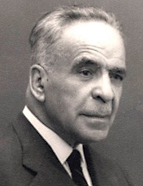

As for De D. João VI aos nossos dias [From D. João IV until today] , this is the fourth volume of the História de Portugal [History of Portugal] in the “ Ontem e hoje ” [ Yesterday and Today ] collection. I n this Lello collection there are books by Rocha Martins, Aquilino Ribeiro, João de Barros and Cidade himself would publish Bocage (1936) . T he other volumes are by Ângelo Ribeiro, the first and third, and Newton de Macedo, the second. The efficient concatenation of the adventures is maintained, resulting in a fast pace, punctuated by questions that make it easier to understand the sequence of events, with the intention of catering for a wide audience. There are brief allusions to the context of the enunciation, which are intended to enlighten the reader if they are not understood as ironic criticisms of the present day: “ like Soviet Russia today ” is used as a term of comparison with France at the beginning of the 19 th century, which was also “ animated by the proselytis m to which ideals are incited that have not yet, in the clashes of reality, exhausted their potential or revealed their deficiencies ” (p. 7); “ the very Gazeta Naciona l ” is followed by “ the Diário do Govêrno of that time ” (p. 6); Costa Cabral is equated with “ some of the great current leaders of European life ” for having been “ unruly until the moment he was able to impose his order ” (p. 58). This Cidade of History, or perhaps that of the 1930s, is more realistic about Portuguese flaws than the Cidade of the other subjects – see the resigned register with which he portrays Portuguese disorganisation during the French Invasions or almost all the kings – while coinciding in the assumption of types by nation or era – D. Miguel, for example, would be “ a very popular summary of the virtues and flaws of ancient Portugal ” (p. 45). Each of the chapters that make up the book – “ Dissolution of Absolutism’, “ The Implantation of the Liberal Regime ” , “ Political Calm ” , “ Implantation of the Republic ” – ends with a synthesis on “ Cultural Life ” , around literature and the visual arts, where the discourse becomes evaluative and the conclusions agree with what we see more elaborately in other studies by the author.
This work is financed by national funds through FCT - Foundation for Science and Technology, I.P, in the scope of the projects UIDB/04311/2020 and UIDP/04311/2020.
